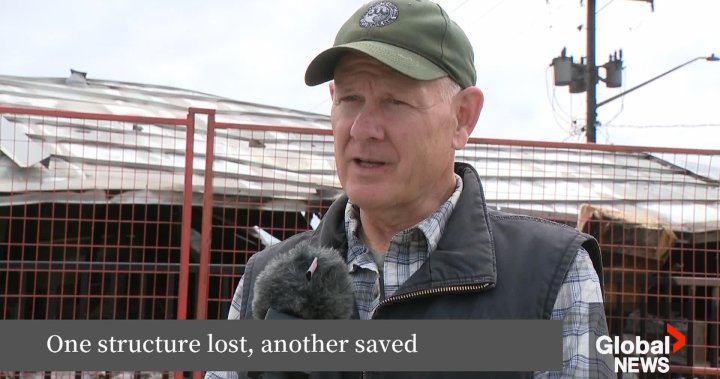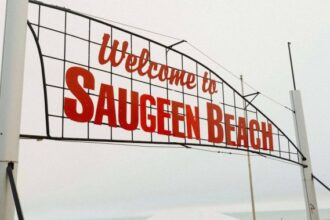In the charred remains of what was once a cornerstone of northern Saskatchewan commerce, Don Roberts stands silently, surveying the devastation that has reduced his family’s 70-year legacy to ashes. The La Ronge Trading Post, an iconic fixture that weathered seven decades of economic shifts and seasonal challenges, couldn’t withstand the merciless wildfires that swept through the community this month.
“Everything is gone,” Roberts told me during our conversation at the site, his voice steady despite the obvious emotional weight. “The store, the equipment, the inventory—we lost it all in just a few hours.”
The Trading Post wasn’t merely a business; it represented the economic and cultural heartbeat of La Ronge. Established in 1954, the store evolved from a traditional trading post serving trappers and fishermen into a modern retail operation offering everything from camping gear to snowmobiles, while maintaining its connection to the region’s heritage.
Provincial fire officials confirm the La Ronge wildfire has consumed over 15,000 hectares thus far, forcing evacuations across several northern communities. The Canada News desk reports that changing wind patterns and unusually dry conditions have created perfect conditions for the fire’s rapid spread, catching even experienced emergency responders off guard.
For Roberts, the financial implications are staggering. Early estimates place damages in the millions, with insurance likely covering only a portion of the actual losses. Beyond the physical assets, the destruction represents an incalculable cultural blow to the community.
“We were more than just a store,” Roberts explained. “People came here not just to shop but to connect. Tourists would stop in to learn about the area. Locals would gather to share stories. That sense of community can’t be measured in dollars.”
The devastation extends beyond the Trading Post itself. According to CO24 Business analysis, approximately thirty employees now face uncertain employment prospects, creating ripple effects throughout La Ronge’s economy. The timing couldn’t be worse, coming just before the summer tourism season that typically brings vital revenue to northern communities.
Local officials have established emergency support services for affected businesses, but the long-term recovery remains uncertain. Saskatchewan’s Minister of Emergency Management has promised provincial assistance, though specific aid packages are still being formulated.
Community response has been swift and heartfelt. A GoFundMe campaign launched by former employees has already raised over $50,000 to support the Roberts family and their staff. Local businesses have offered temporary employment to displaced workers, demonstrating the tight-knit nature of this northern community.
As climate scientists have long warned in CO24 News reports, the increasing frequency and intensity of wildfires represent a growing threat to northern communities. Saskatchewan has experienced a 40% increase in wildfire activity over the past decade, challenging traditional emergency response capabilities.
Roberts, despite the overwhelming loss, speaks with remarkable resilience about the future. “We’re going to rebuild,” he stated firmly. “Different, maybe smaller at first, but we’ll be back. This community needs its Trading Post.”
As evacuation orders gradually lift and residents return to assess damages, the question that lingers over La Ronge extends beyond the immediate recovery: in an era of increasingly unpredictable climate patterns and more frequent natural disasters, how will northern communities adapt to protect their economic foundations and cultural heritage from similar devastation in the future?


















